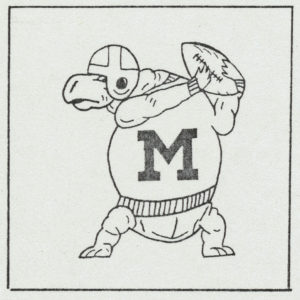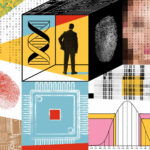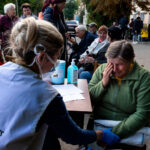UMD Withdraws Chocolate Milk Claim
In December, the University of Maryland issued a press release claiming that a certain chocolate milk formulation “helped high school football players improve their cognitive and motor function … even after experiencing concussions.”
A stunning finding, if true. And of course it wasn’t. On April 1, the university issued a detailed report finding fault with nearly every aspect of its communications and its efforts to partner with industry. And it finally took the release down.

Testudo on the gridiron, 1970
Patrick O’Shea, the university’s vice president and chief research officer, said in a letter accompanying the report that the university was returning money it got from the company that formulated the drink, and that UMD planned to completely overhaul its policies related to conflicts of interest, university partnerships and the release of preliminary results. “Any deviations from accepted practices in the responsible conduct of research cannot be tolerated,” he wrote.
We know the history of this release mostly as the result of dogged reporting by Andrew Holtz and Earle Holland of HealthNewsReview.org, who in December demanded a copy of the study underlying the claim. Maryland stonewalled. It didn’t offer any data to support the claim. What’s worse, it didn’t take the study down, even after being repeatedly questioned about the study’s legitimacy.
The university’s only response was to add this, at the top of its press release: “This press release refers to study results that are preliminary and have not been subjected to the peer review scientific process.” The university refused to release even those preliminary results, whatever they might have been. When I contacted communications staff on February 22, they said they had nothing to add.
In a post Monday entitled “Questions, answers and lessons from the Maryland chocolate milk/concussions debacle,” Holtz and Holland wrote that “the university credited journalists with spotting that something was amiss.” The university’s report, they said, “is a thorough document that indicates — once our reports got the attention of top officials — they dug deeply.”
In an interview, Holland, who spent almost 35 years as the senior science and medical communications officer at Ohio State University, said he took three lessons away from L’affaire de chocolat.
“First and foremost, institutions have to use extreme diligence when dealing with human subjects,” Holland said. The claim concerning chocolate milk was based on human studies that received only a cursory, expedited approval from the university’s human-studies review board, he continued.
The second lesson is that university officials must understand conflict of interest and how to avoid it, he said. The university report made clear that very few of its people did. That’s particularly important in cases such as this one, in which a university partners with industry, Holland added.
And lastly, “there is no justification for the kind of stonewalling that Maryland did,” Holland said. “This demonstrated why open communications is absolutely essential for a public institution.”
O’Shea did not say whether anyone would be dismissed over this episode, writing that “any potential sanctions against faculty or staff involved in this matter would be considered, by policy, confidential personnel matters.”
That is not the kind of open communication Holland was calling for. “The way to handle that from a public information standpoint is, ‘We can’t talk about the sanctions until after the sanctions are applied,’” he said. “At that point, all sanctions should be acknowledged.”










